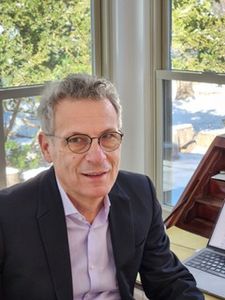Garcević: Bilateral Consultations Mark Critical Moment for Montenegro’s EU Aspirations

Vesko Garcević, Professor of the Practice of IR and Director of the BU Center for the Study of Europe at the Frederick S. Pardee School of Global Studies, analyzed the recent bilateral consultations between Montenegro and Croatia in an interview with the MINA agency.
The consultations, focusing on resolving diplomatic tensions, addressed several critical open issues between the two countries. Garcević had previously emphasized that these discussions were “a step in the right direction,” highlighting the importance of diplomatic dialogue in overcoming regional challenges.
At the heart of the negotiations was Croatia’s blockade of Montenegro’s negotiation Chapter 31 on Foreign, Security, and Defense Policy, which had significantly impeded Montenegro’s EU accession process. Garcević warned that Croatia risked putting itself in an “uncomfortable position within the EU” by continuing to obstruct Montenegro’s European path.
Sensitive topics discussed included contentious issues such as the Morinj camp and the naming of a swimming pool in Kotor. The professor argued these disputes could be “resolved relatively easily if there is political will and if these issues are not politicized.”
Garcević stressed the critical nature of these negotiations, believing that the potential EU membership is too significant to be compromised by what he termed “petty political games.” He emphasized the need for Montenegro to prepare well and present documented arguments, maintaining that “if two sides want to cooperate, they can find creative solutions.”
The bilateral consultations represented a crucial diplomatic effort to address open issues and potentially clear the path for Montenegro’s continued progress toward EU membership. With the EU showing a strong interest in Montenegro becoming a new member, these discussions held substantial importance for the country’s European integration efforts.
Ambassador Vesko Garčević dealt with issues pertinent to European security and NATO for almost 14 years during his diplomatic career. In 2004, he was posted in Vienna to serve as Ambassador to Organization for Security and Cooperation in Europe. He was Montenegro’s Ambassador to NATO from 2010 until 2014 and served as Montenegro’s National Coordinator for NATO from 2015 until he joined the faculty at the Pardee School. Learn more about Ambassador Garčević on his faculty profile.